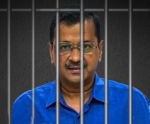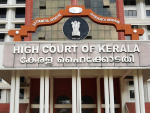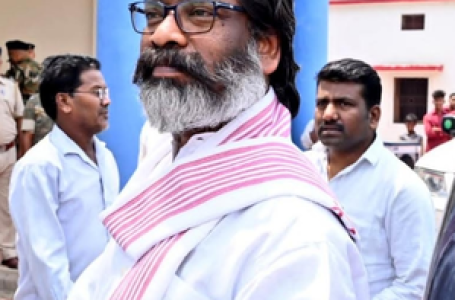March 1, 2020
New Delhi: The Delhi Police on Sunday imposed prohibitory orders in Shaheen Bagh area in southeast Delhi and deployed a large number of security personnel in the area.
A senior police officer said these were precautionary measures.
Shaheen Bagh has been the epicentre of anti-Citizenship (Amendment) Act protest, wherein women and men have organised a sit-in on a road since December 15 last year.
Police said that Section 144 of the Criminal Procedure Code was imposed in Shaheen Bagh area near Jamia Millia Islamia.
Section 144 empowers an executive magistrate to issue orders in case nuisance or danger to public peace is apprehended. Though its scope is wider, the Section is often used to prohibit assembly of five or more persons when unrest is anticipated.
The heavy police deployment comes in the wake of a call by a right-wing group, Hindu Sena, to clear the Shaheen Bagh road on March 1. The Sena has since called off its proposed protest against the anti-CAA agitation in Shaheen Bagh after police intervened on Saturday.
Joint Commissioner of Police Devesh Chandra Srivastava said that police deployment and prohibitory restrictions were precautionary measures. “Heavy police deployment in Shaheen Bagh is a precautionary measure. Our aim is to maintain law and order and prevent any untoward incident,” Srivastava said.
The Delhi Police move comes in the backdrop of violence in northeast Delhi that resulted into the death of 41 persons and injuries to over 200 others.
Hundreds of men and women, some in ‘burqas’ and many accompanied by children, have occupied a nearly one km stretch of a six-lane highway passing through Shaheen Bagh to connect Delhi and neighbouring Noida in Uttar Pradesh to protest against the new citizenship law and a proposed citizens’ register that have brought hundreds of thousands of people onto the streets across India.
Violent demonstrations have rocked the country since December 12 after Prime Minister Narendra Modi’s government enacted the Citizenship (Amendment) Act (CAA), which aims to grant citizenship to six-non-Muslim minorities — Hindu, Sikh, Parsi, Jain, Christian and Buddhist — who migrated to India on or before December 31, 2014 from Bangladesh, Pakistan and Afghanistan. IANS



















